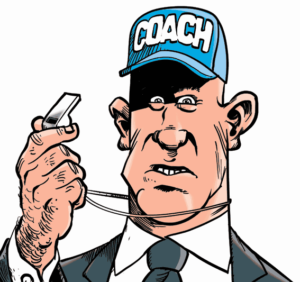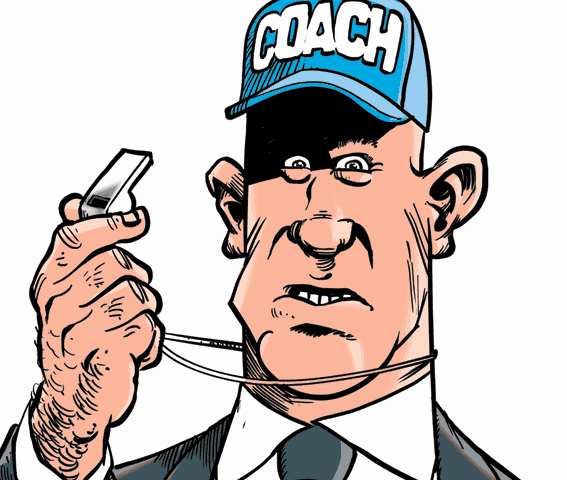
The 2-Letter 4-Letter Word
February 9, 2015
It’s Possible!
April 7, 2015
Among the many opinions we tend to possess is the belief that people should be competent enough to handle their own personal finances, make their own decisions, and implement them by themselves.
Do I really need a financial coach?
When it comes to personal finance, why wouldn’t we call a coach? Someone who understands your problems and issues, has seen it before, and can recommend a course of action. All the best athletes on the planet (you did catch some of Winter Olympics –right?) have coaches. Why? Discipline, encouragement, instruction, feedback, teamwork, dedication and they help athletes maintain their focus. A good financial coach does the same for their clients.
The key component that a financial coach brings to the table for a client is objectivity – helping a client understand where they are financially. Once that is done, their ability to educate and manage a client’s expectations aids in charting a course of action to build a better, more financially secure future.
How does one hire a good financial coach?
I don’t believe there is a set answer for this, but here are three questions I would suggest you ask and feel comfortable with the answers you receive before you consider working with anyone.
What are your qualifications? Plenty of people offer financial advice, and many call themselves financial coaches. These range from mutual fund salespeople, stockbrokers, insurance agents, tax accountants, or your local bank branch advisors. Financial coaching requires experience and a sound technical understanding of investment options, insurance, taxes, estates, wills, and trusts to name a few.
Ask what type of training they have taken and which professional designations they hold. Credentials alone don’t indicate competence, but they demonstrate a commitment to the profession. Common credentials are: CFP - Certified Financial Planner, CLU - Chartered Life Underwriter, CFA - Chartered Financial Analyst, CHFC - Chartered Financial Consultant. For a complete list with descriptions, I will refer you to the Financial Planners Standards Council website at: www.fpsccanada.org.
The financial services sector is known for a relatively high attrition rate. As such, experience is an important consideration. Seniority alone should not be the deciding factor, but working with someone who has experienced “bull market euphoria” and “bear market despair” can help give you the proper perspective in dealing with the investor psychology. Helping a client manage their expectations through market cycles is one of the most important roles of a financial coach.
How do you get paid?
Coaches may earn compensation from fees billed to you, commissions from products sold to you – or a mix of both. Some feel there is an advantage to “fee only” because there is no pressure to sell you anything. Fees can range from an hourly rate for work done, a flat fee to create a financial plan, or a fee based on the percentage of assets managed. Fee-only coaches may not have any direct motivation to help you implement the plan. Having a plan and not implementing it is equivalent to having no plan at all.
Good coaches are upfront about their fees and all costs associated with any investment you make. If you don’t understand the fees, ask. Request full disclosure and ensure they provide it. I f you still have questions, ask again. If they aren’t prepared to fully disclose and explain their costs, that should bother you.
How do they handle their non-expert areas?
I don’t feel that a coach can be 100% versed in every aspect of the financial arena, so the coach’s business relationships are key. What access does the coach have to tax specialists, lawyers, business accountants, insurance specialists, etc? What is the cost to use these experts? Sometimes if you are dealing with a coach in a large integrated firm, this expertise is all housed in one place and it is part of a blended fee.
Hiring a financial coach can be a scary thought for many people. You have to be comfortable and willing to share personal information with them. They have to understand your dreams and goals. Discussing that much personal information with a ‘stranger’ can scare people. Don’t be intimidated. Financial coaches aren’t there to pass judgment. They exist to help you attain the goals you want for yourself and your family. You are responsible for your part in the planning process; nobody will care more about your money than you will. Peace of mind with the people who are helping you in the process is a great place to start.

